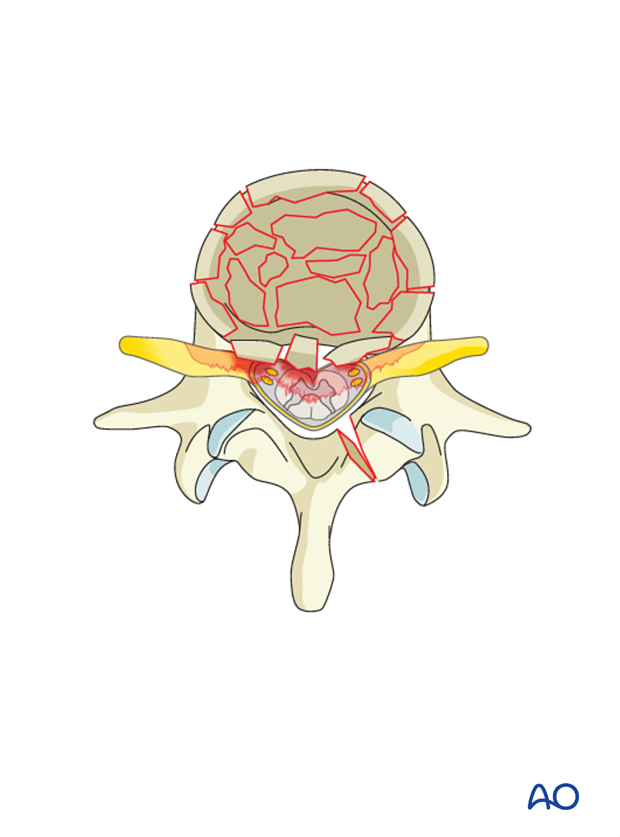Thoracolumbar trauma with spinal cord injury
1. Spinal cord injury
The majority of patients with a traumatic spinal cord injury will require surgical intervention to deal with the spinal pathology.
In principle, surgical decompression and reconstruction should be undertaken within 24 hours.
It is essential to maintain spinal cord perfusion during surgical intervention in a spinal cord injury patient.
Main arterial blood pressure should be maintained above 85 mm Hg.
If required, an infusion of an inotropic medication (dopamine or levophed) should be instituted.
The use of methylprednisolone in the setting of spinal cord injury can be considered.
Methylprednisolone, if used, should be administered according to NASCIS-2 protocols.
Methylprednisolone should be administered within 8 hours of spinal cord injury. The dose is 30 mg per kg IV over one hour followed by an infusion of 5.4 mg per kg per hour for 23 hours.
Methylprednisolone is not recommended for the following circumstances (due to an adverse risk benefit ratio):
- The multiply injured patient
- Penetrating spinal cord injury
- Patients with glucose intolerance or diabetes mellitus
- Patients with multiple medical comorbidities or with impaired immune system
- Elderly patients
- Patients with a complete thoracic spinal cord injury (ASIA A)














